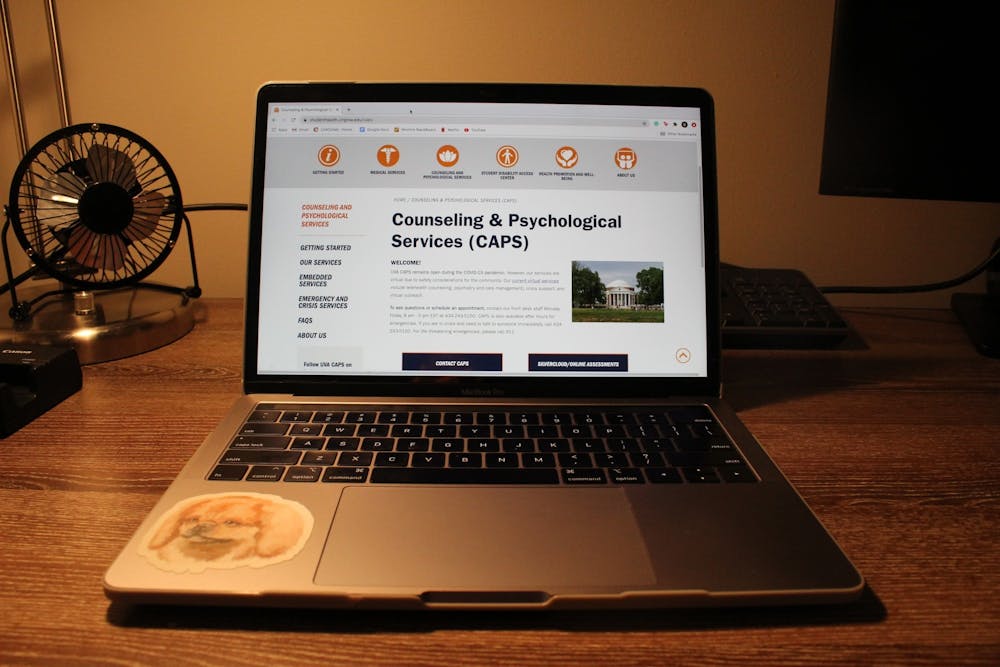Lea en español
The pandemic perpetuated and exacerbated mental health conditions. Isolation, loss of stability and anxiety resulting from an international crisis are bound to affect students. However, it is the University’s job to provide a productive, safe and supportive environment for students to succeed. They continued to announce a commitment to student wellbeing while consistently making decisions that neglected student mental health and failed to acknowledge their position in the pandemic.
One of the University's attempts to support mental health last semester was intermittent break days in lieu of a regular weeklong spring break. These short break days were intended for students to rest and recharge but were useless in reality. One weekday off did not give any students the ability to get out of a working mindset, especially since many spent break days catching up or studying for exams and completing projects scheduled the very next day. Isolation also intensified this semester during a mandated COVID-19 lockdown, due to the University’s decision to have in-person rush for the Inter-Fraternity and Inter-Sorority Councils.
Some students were being hit harder by the pandemic than others. For example, students of color are burdened with fearing for their wellbeing while trying to keep up with classes. As Asian-targeted hate rose with the onset of the pandemic, Asian students face stress, fear and silencing. The Asian-American community is often overlooked as one that faces racism, and the University and Charlottesville communities stepped in to call out institutional inaction from the University. The pandemic has been heavily traumatizing for Black students as well, with constant exposure to racial unrest, police brutality and negative news coverage which takes a toll on mental health. As hate crimes, income disparities and racism have increasingly impacted communities of color during the pandemic, the University failed to appropriately acknowledge these issues and adjust their support for these students’ mental health.
Additionally, course timelines became much more intense with the shortened semester. Professors did not seem to recognize the burden of the pandemic on students besides providing vague statements of solidarity. Assignments, readings and exams continued to be assigned at peak volume with less time to do them. Virtual and asynchronous classes were still extremely hard to learn from, especially for those learning in unproductive environments off-Grounds. There was also no reading day between courses ending and final examinations starting, meaning students received no respite before the most important week of the semester. The University continued to make decisions that did not allow students to recover and manage their mental health. In the future, they must acknowledge these shortcomings and concentrate on putting mental health first when scheduling the semester.
The University did provide a COVID-19 credit/no credit grading policy in the spirit of fairness and to reduce stress, but it continued to perpetuate the inequity that exists in higher education. For example, choosing this grading option can reflect poorly on those applying to graduate schools, even though many disadvantaged students need to take advantage of the option.
The University’s Counseling & Psychological Services is the default mental health resource for students. However, it does not provide long term solutions, instead acting as a limited referral service. While CAPS does provide immediate assistance, the Women’s Center is recommended as the place to go for free longer term care, even though it does have a waitlist due to popular demand. Both CAPS and the Women’s Center have limited services and capacity that do not adequately meet the needs of struggling students. The University must invest in improving services and hire more staff to accommodate student mental health.
This pandemic has intensified racism, widened disparities among students and Charlottesville locals and has pushed the student community to its limits. Investing in mental health must be a priority for the University if students’ wellbeing is to be prioritized. This means hiring more staff, scheduling normal breaks for students during the semester and supporting communities of color and low-income students who are struggling during the pandemic. Instead of the University shrugging their shoulders and offering CAPS for the hundredth time, the University needs to make decisions that prioritize mental support for students, faculty and staff.
Nicole Chebili is an Opinion Columnist for The Cavalier Daily. She can be reached at opinion@cavalierdaily.com.
The opinions expressed in this column are not necessarily those of The Cavalier Daily. Columns represent the views of the authors alone.







